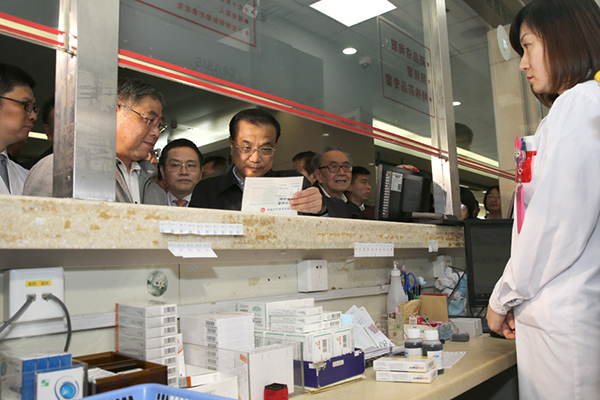
Premier Li Keqiang inspects the supply and prices of urgently needed drugs during a visit to Huashan Hospital, Fudan University, Shanghai, April 11, 2018.
China has decided to improve the national list of essential drugs, adding 187 medicines to the list to expand the total number of drugs to 685 with a focus on those related to cancer, chronic diseases and children.
Improving the system of essential drugs is a major measure to deepen medical reform and enhance basic public health services, which will meet people’s basic demands for drugs, Premier Li Keqiang said during the State Council executive meeting on Aug 30.
Essential drugs are the medications that meet basic medical demands and are accessible to the public at a reasonable price and with adequate supply. All levels of medical institutions take the national list of essential drugs as the basis for the use of drugs.
Among the newly added medicines, there are 12 anti-tumor drugs, six of which are targeted drugs, and 22 urgently needed children’s medicines for clinical use, as well as a new drug for the hepatitis C virus.
The national list of essential drugs should be adjusted on a timely basis to include newly approved, effective and reasonably priced medicines, according to the meeting.
Premier Li said public healthcare institutions should plan for pooled procurement to push drug prices down, and drugs in the list should be given precedence to be included in medical insurance catalogues to alleviate patients’ burdens.
In case some drugs are in short supply, designated production and advance reserves are encouraged. Also, public healthcare institutions should use basic medicines first, which are related to subsidy they will receive.
The Premier also asked all related authorities to enhance supervision on drug quality.